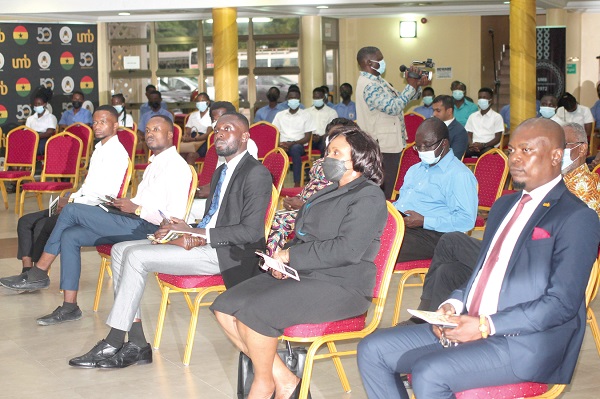
Private sector firms yet to leverage AfCFTA
Majority of private sector firms in the country are yet to develop a corporate strategy to gain competitive advantage of the Africa Continental Free Trade Area (AfCFTA), nearly 18 months after trading started.
A Senior Partner of AB & David Africa, a law firm, David Ofosu-Dorte, described the situation as worrying and urged the firms not to hesitate to come up with the strategy to enable them to benefit from the initiative.
Advertisement
Mr Ofosu-Dorte, who was addressing the Ghana Academy of Arts and Sciences (GAAS) Forum 2022 in Accra last Monday, said the failure to develop a corporate strategy by businesses was not the lack of knowledge of the AfCFTA, but the lack of ability to take advantage of the initiative and see Africa as a big market for their products.
Forum
The three-day forum, which is on the theme: “Africa Continental Free Trade Area: Challenges and prospects,” is being held in sessions and addressed by speakers such as the Head of Trade, Services Division of AfCFTA, Beatrice Chaytor; the Dean of the University of Professional Studies (UPSA) Law School, Prof. Ernest Abotsi; the Chief Executive Officer of the Universal Merchant Bank (UMB), Nana Dwemoh Benneh, and the Governor of the Bank of Ghana (BoG), Dr Ernest Addison.

It is under the auspices of GAAS, in collaboration with UMB.
Speaking on the topic: African Continental Free Trade Area: Implications for private sector development”, Mr Ofosu-Dorte said the private sector needed an enterprising mindset to succeed under the initiative.
“The way the private sector thinks and does business in itself needs to change. There are many private sector business owners who are happy to say I am the sole owner of just a single firm rather than having 10 per cent shares in a conglomerate with 100 companies.
“Some of these things need a re-look for solutions and also realignment of the national psyche. The success of AfCFTA will be determined mostly by collaborations,” he added.
Protocol on trade in goods
The Head of Trade in Services Division at AfCFTA, Ms Chaytor, explained that under the protocol on trade in goods, there would be an elimination of duties and quantitative restrictions on imports on 90 per cent of all tariff lines over five years for non-least developed countries (LDCs) and 10 years for LDCs.
Also, seven per cent of tariff lines that were considered sensitive products will be eliminated after 10 years for non-LDCs and 13 years for LDCs.
She said the application of rules of origin provisions would ensure that small and medium enterprises (SMEs) that used significant African content in their products would have those items qualified as originating products eligible under the AfCFTA preferential trade regime in terms of raw materials and value addition.
Ms Chaytor further said that the provisions of Annex on sanitary and phytosanitary standards entail harmonisation of standards, licensing and certification across the continent to make it easier for SMEs to meet export standards and also satisfy regulatory requirements for diverse markets on the continent.




